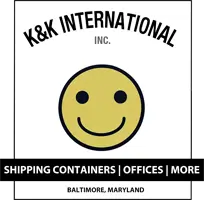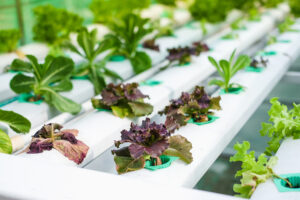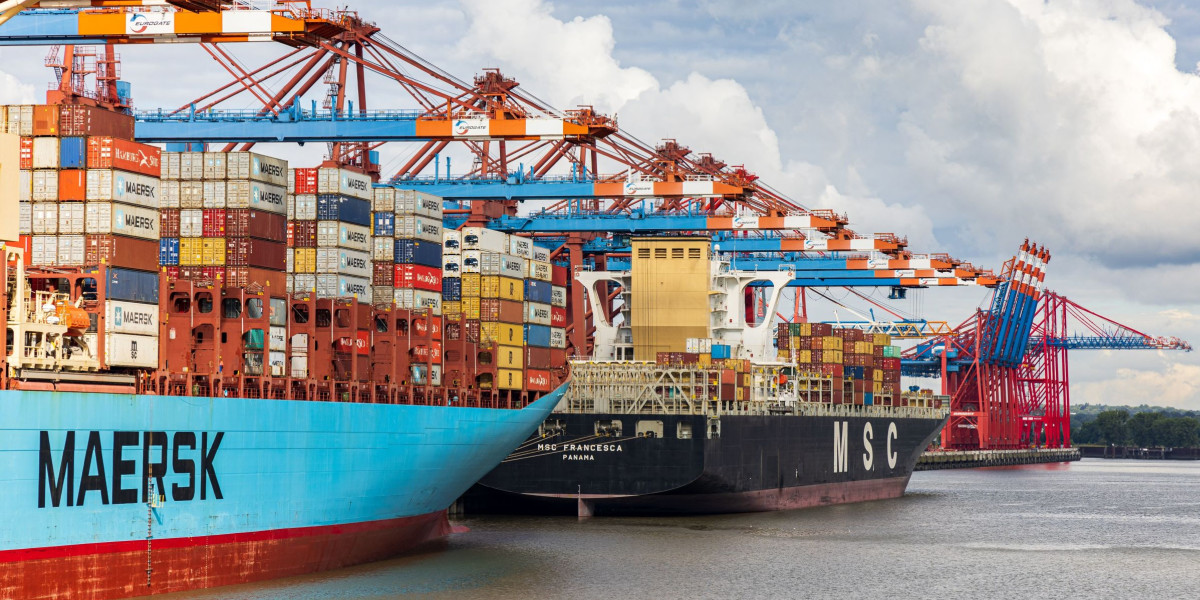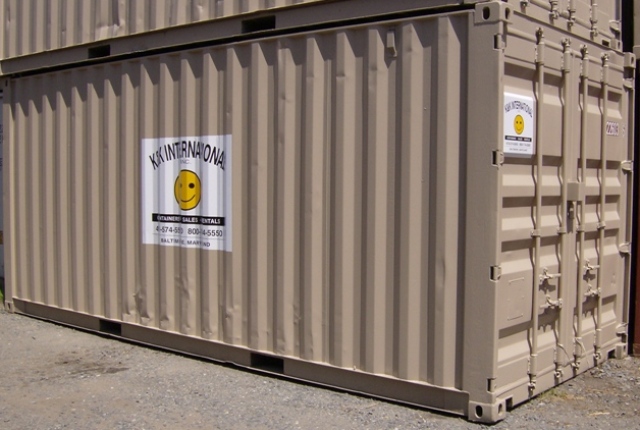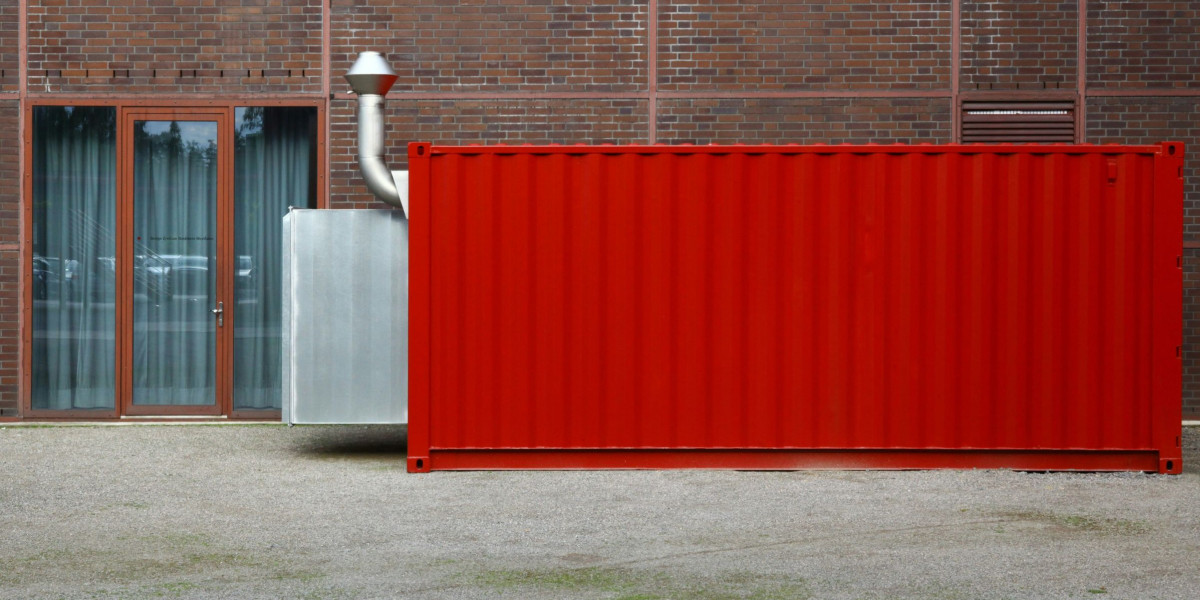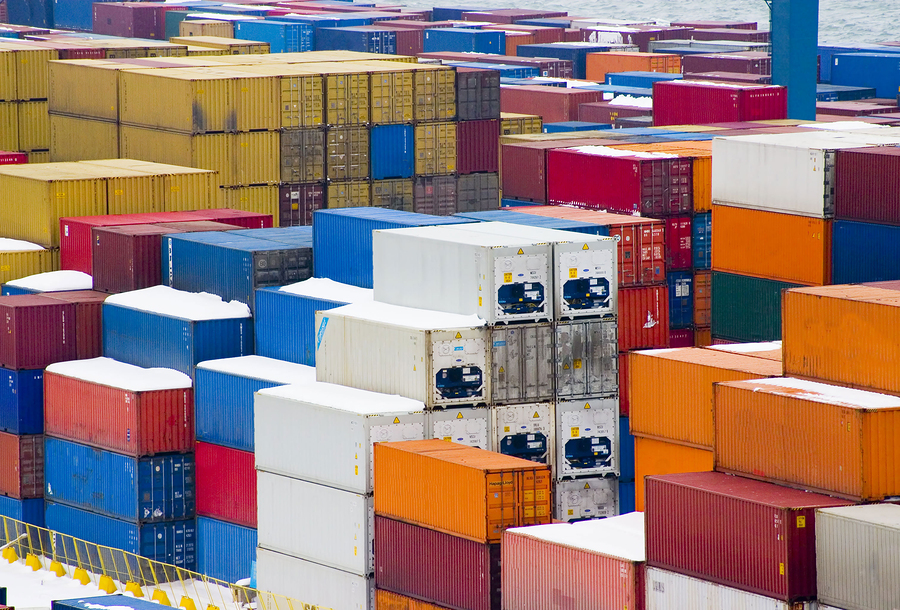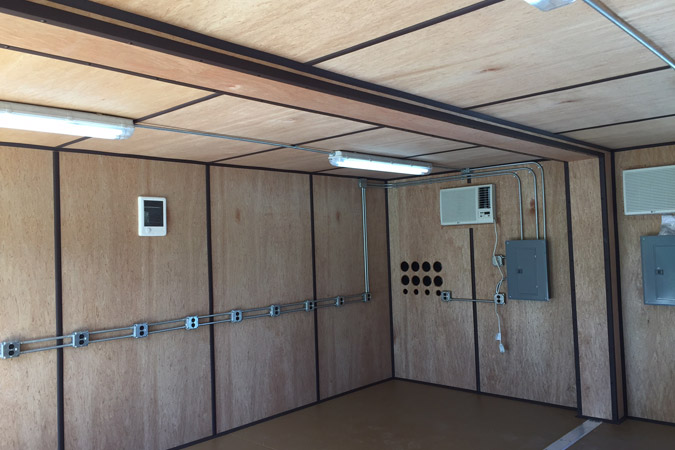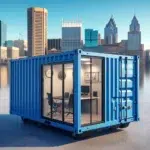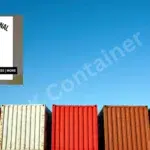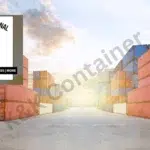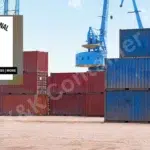Shipping containers and urban farming seem like odd bedfellows. But the two are perfectly matched. In fact, a shipping container farm may soon be located in a parking lot near you.
Why? Interest in container urban farming has exploded in the last few years. All across the U.S., start-ups, and DIYers are building shipping container farms that may soon be the answer to providing local produce to cities around the world.
The reason is simple: shipping containers provide ideal environments to grow produce, and when fitted with water, lighting, and nutrient delivery systems, shipping container farms are high yielding and easily adaptable.
How Does a Shipping Container Farm Work?
Two agricultural ideas are behind the container urban farming revolution: Hydroponics and vertical farming.
Shipping containers can be fitted with the technology and hardware that make both of these growing methods work. Here’s how:
- First, In a shipping container farm, plants – typically leafy greens, herbs and strawberries – are grown vertically. Vertical grow walls are installed inside of the container, with outlets for each individual plant.
- Second, the shipping container is fitted with a network of pipes that delivers water and nutrients to each individual plant. Since they’re grown hydroponically, the plants don’t require dirt; instead, the root systems form within the water.
- Third, hanging LED light strips are installed in the container, which provides red and blue light to the plants. Blue and red light are used because they are the most beneficial to plant growth. In addition to lights, exhaust and venting systems are installed to manage the humidity within the farm.
In a nutshell, this is how shipping container growing is supported, but there are a number of key benefits to growing food like this.
Why Are Shipping Container Farms Ideal for Urban Farming?
First and foremost, shipping containers are great, because they are easily transportable. They can be shipped and moved from one location quickly, even productive farms can be moved if required. Five additional benefits include:
- Space Savings: Most standard size shipping containers have a small footprint of 350 square feet. Yet, by using vertically aligned plants, space is maximized. A container can provide up to three acres of growing space within a small footprint. That’s why shipping containers are well-suited for urban farming.
- Water Conservation: Freight farms are highly controlled, with the precise amount of water and nutrients delivered to each plant. This process prevents water waste. In fact, most shipping container farms use just 5-10 gallons of water each day – 80 to 90 percent less than traditional outdoor farms.
- Year-Round Growing: Shipping containers have controlled environments, which enables temperatures to be managed. Therefore, an indoor garden can produce in all seasons, no matter the outdoor climate.
- Environmental Controls: A shipping container farm does not have to contend with pests, plant diseases or fungi. It is a highly sterile environment, and that means plants can be grown pesticide-free.
- Faster Growth: Since growers can fine tune light, water and nutrients, food is grown faster. For example, lettuce from seed to table can grow in about seven weeks in a shipping container, which is half the time of traditional farms. Once in full production, a typically shipping container farm can produce 50-100 pounds of lettuce per week.
Container Urban Farming and Greenhouses: A Growing Trend
In addition to the closed container garden, urban farmers are also experimenting with shipping container greenhouses, which use similar design elements.
Greenhouses replace the flat-top roof with a transparent pitched roof. Water and nutrient supply tubs are placed within the container and piped to plants above within the greenhouse. A metal grate floor is used to hold the plants above, with access from underneath. Like the container farms, the greenhouses also help to greatly reduce water use and use natural sunlight to grow plants.
Frequently Asked Questions About Container Urban Farming
Is shipping container farming profitable?
The answer is a resounding yes. With the right planning and execution, container farming can yield substantial profits.
What is a container farm?
A container farm is a fully-functional farm housed within a repurposed shipping container. It utilizes hydroponic or aeroponic growing methods to cultivate a variety of crops in a controlled environment, regardless of external weather conditions.
What are the drawbacks of container farms?
Like any other farming method, container farms are not without their challenges. The initial setup cost can be high, and maintaining the right balance of nutrients and light for optimal plant growth requires expertise and constant monitoring. Additionally, power outages can disrupt the controlled environment and potentially harm the crops.
How much can a container farm produce?
A single 40-foot shipping container can produce equivalent yields to an acre of traditional farmland annually, depending on the crop grown. This high yield in a small footprint makes it an attractive option for urban farming.
What is the most profitable farm size?
The profitability of your farm is not solely determined by its size but rather by its efficiency and the market demand for your produce. Therefore, while larger farms have the potential to generate more revenue due to their higher production capacity, smaller farms that are well-managed and cater to niche markets can also be highly profitable.
Are containers a good investment?
Investing in containers for urban farming can indeed be a good investment. The rising demand for locally grown produce and the increasing scarcity of arable land in urban areas make container farming an attractive and sustainable solution. However, like any investment, it requires careful planning, diligent management, and a thorough understanding of both the market and the technology involved.
The Bottom Line
Interest in both of these trends is growing quickly. Already projects are being piloted in Boston, Brooklyn, Washington D.C., and Philadelphia.
Are you interested in shipping container farming? K&K provides new and used shipping containers to container farm manufacturers and DIY builders. If you need a container, we can help. Request your quote now!
